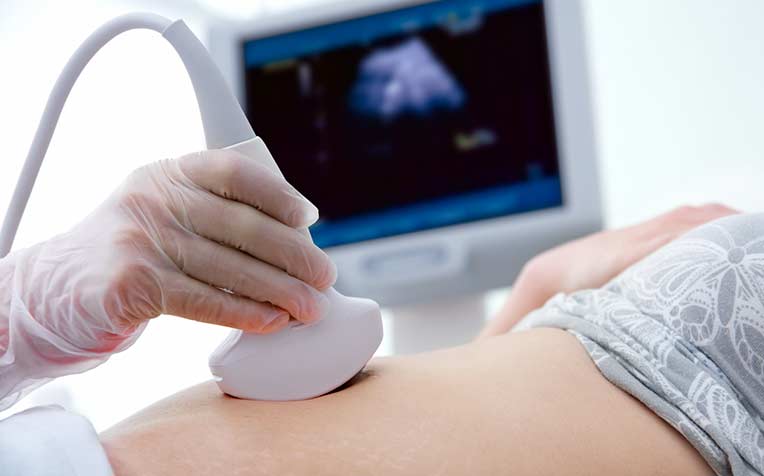1. CVS involves taking placenta tissue samples between weeks 10-12 of pregnancy to detect chromosomal and genetic disorders.
2. It's recommended for women over 35, those with family history of disorders, or both parents carrying thalassaemia.
3. The procedure is safe with 1% miscarriage risk, takes minutes, and results are available in 3-4 weeks.

Chorionic villus sampling (CVS) tests for chromosomal disorders and genetic diseases in the foetus. Ultrasound is used to guide the needle during the procedure to prevent harming the unborn child. Local anaesthesia will be given for the procedure.
Chorionic villus sampling (CVS) is a procedure in which an obstetrician withdraws a small amount of the placenta tissue. This is done by inserting a biopsy needle through the mother's abdomen into the placenta. The obstetrician will use ultrasound to guide the needle during the procedure so as not to harm the unborn child. For this procedure, local anaesthesia will be given.
The procedure is performed on an outpatient basis and takes only a few minutes.
The needle will cause some pain when it penetrates the uterus, but the pain should not last long and should not hurt more than an injection into any other part of the body.
After the tissue has been withdrawn, the removal of the needle should cause no further discomfort. The tissue is then sent to the laboratory for special tests.
Why is Chorionic villus sampling necessary?
Chorionic villus sampling is done for the detection of chromosomal disorders and genetic diseases such as thalassaemia.
Chromosomes carry genes that pass certain characteristics from parents to their children. When there are too many or too few chromosomes, or there is a defect in a chromosome, birth defects usually occur.
Down Syndrome is the most common chromosomal disorder. It causes mental retardation and other health problems such as heart defects. Other less common chromosomal disorders may lead to serious handicaps and death.
Thalassemia is an inherited blood disease, which is transmitted by a gene. If both parents have the thalassamia trait, the chance of having a child with thalassaemia major is 25%.
When is Chorionic villus sampling done?
Chorionic villus sampling is usually done between 10th to 12th week of pregnancy.
When will the Chorionic villus sampling test results be available?
Usually it takes about 3 to 4 weeks to complete the laboratory tests.
Can all birth defects be detected by Chorionic villus sampling?
No. Chorionic villus sampling can detect almost all known chromosomal disorders. It can also check for specific genetic disease.
Who should consider Chorionic villus sampling?
- Women who are 35 years of age or older at delivery. This because their children are at an increased risk of chromosomal disorders such as Down Syndrome
- Women who have had a child with Down Syndrome or other chromosomal disorders
- Women who know that they or the baby's father have an unusual chromosome arrangement
- If both parents are thalassaemia carriers
There may be other reasons that apply uniquely to you. Both you and your obstetrician should decide together if you need a chorionic villus sampling.
Is Chorionic villus sampling safe?
Chorionic villus sampling is a safe, low risk procedure when done by experienced medical experts. The risk of miscarriage following the test is reported to be 1%.
Useful information
You should be able to return to your normal activities within a few hours after the procedure.
You may have your bath as usual.
There are no dietary restrictions relating to this procedure.
No medication is required following this procedure.
Return to the hospital or call your obstetrician if (after a Chorionic villus sampling):
- You run a fever
- You feel nauseated and vomit
- You experience pain in the shoulder
- You experience any unusual lower abdominal pain
- You notice vaginal bleeding
- You notice leakage of fluid from the vagina
Ref: M19
Contributed by














 Get it on Google Play
Get it on Google Play